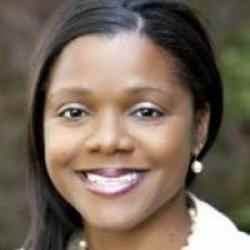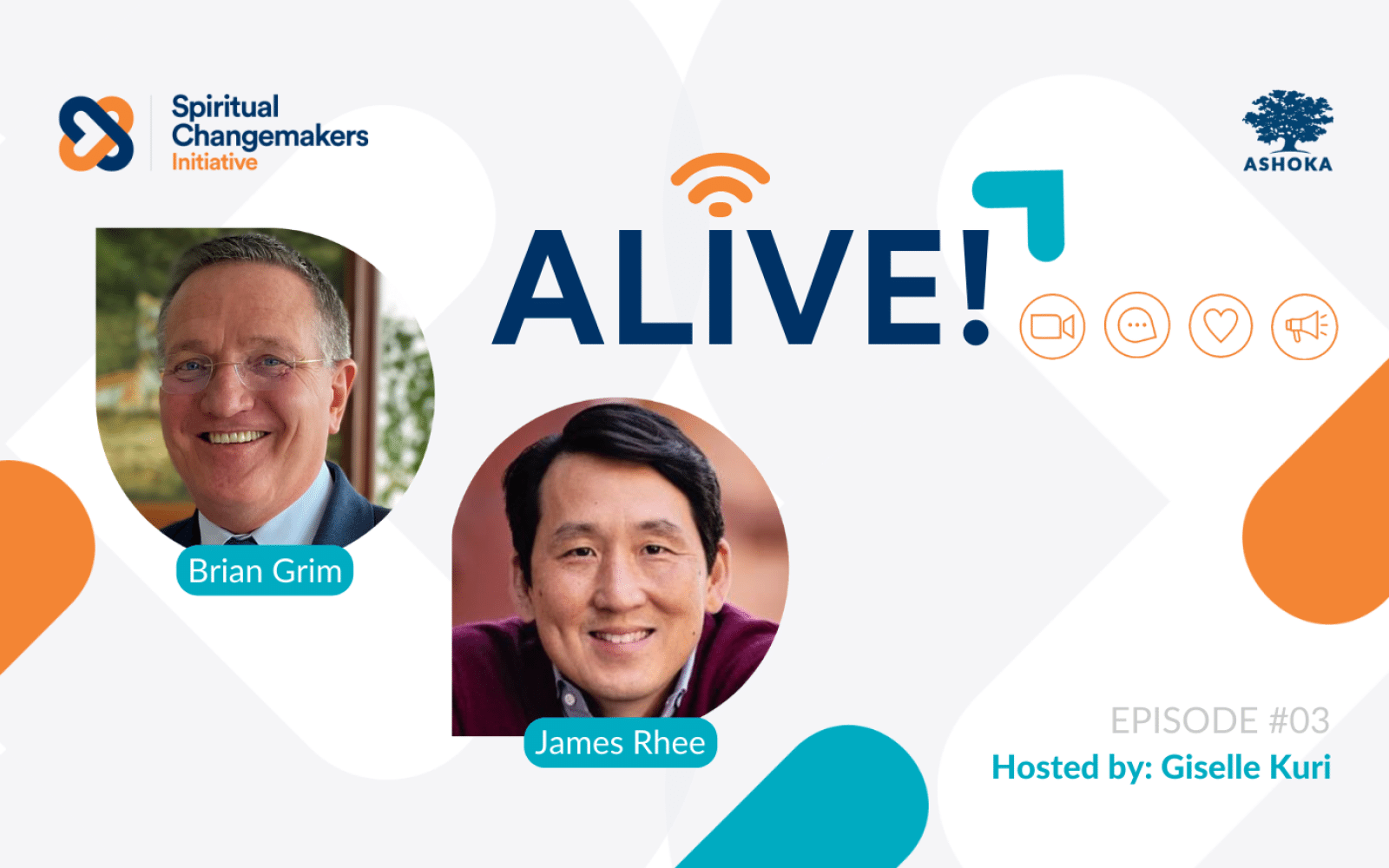
Njideka Harry
Njideka Françoise Harry is working with leading entrepreneurs who have made a big, positive impact in their industry and who want to make an equally transformative impact on society. An experienced entrepreneur-for-good and philanthropy advisor, Njideka is a Leadership Group Member and Vice President, Strategic Entrepreneurship Relationships, where she oversees "Entrepreneur-to-Entrepreneur," an exclusive network of high-impact entrepreneurs who partner with Ashoka's most powerful social entrepreneurs to change the way people harness their social, political, financial and intellectual capital to create lasting systemic change.
A serial social entrepreneur and an Ashoka Fellow, Njideka started her first social business, a neighborhood bakery, at the age of 12. She experienced first-hand how such enterprises sit at the inflection point of market and social norms – as a transactional business requiring an understanding of non-market values that regulated operational behavior. Most Ashoka Fellows have their first changemaking experience in their early teens. Those who signaled that they started something noteworthy in their teens are four times more likely to be entrepreneurs.
At 25, Njideka founded Youth for Technology Foundation (YTF), an education technology citizen sector organization. YTF leverages appropriate technology for education and entrepreneurship, replacing economic disparity with economic opportunity. Since founding YTF, Njideka has built several award-winning initiatives that leverage technology for good, while bridging digital and gender inequities.
A Fellow at the World Economic Forum, Njideka serves on the Civil Society and Future of Work committee. She has served on the Kellogg Advisory Council and is currently in the Pete Henderson Society of Northwestern University. She is an advisory board member of the Alliance for Affordable Internet, an expert contributor for the prosperity index at the Legatum Institute in the UK and is on the Global Advisory Council of TWIN Tech. Prior to working in social impact and philanthropy, Njideka began her corporate career at GE Capital and Microsoft traveling and working out of offices in Europe, Africa, and North America.
Njideka earned her Bachelor of Business Administration from the University of Massachusetts, Amherst, and a Master of Business Administration from Northwestern University Kellogg School of Management. She completed post-graduate studies at Stanford University, where she was a Reuters Digital Vision Fellow.
Why Do We Teach Children About Kindness?

When transformative CEO, investor, and member of the Ashoka Entrepreneur-to-Entrepreneur (E2) Network James Rhee started writing his popular TED talk, he considered opening with questions about what we teach our children.
“Maybe we should stop lying to our kids. Why don’t we just rewrite a lot of the early childhood books and tell people and kids how it really is at work?” he said.
“Things like generosity and mutualism and being gracious—why are we telling them about these things when we’re clearly teaching them something very different not just in most workplaces but also in the business world?”
James ended up taking a different approach with his talk but came back to this topic on a recent webinar with Ashoka’s Spiritual Changemakers team, moderated by Giselle Kuri, where he was joined by Brian Grim of Freedom of Religion in Business Foundation.
“I think the fundamental construct that I’ve had a personal challenge understanding is that there are different accepted norms of behavior in different parts of one’s life. You live at home, you live a certain way. You go to work, there’s a different set of rules,” he said.
“A lot of those work life rules allow people to justify certain types of behaviors, legally and economically, that you probably wouldn’t feel proud about getting away with at home or in your social circles.”
“I’ve never been a different person,” he said. “It’s too tiring.”
Wholeness At Work
James and Brian participated in this installment of the ALIVE! Spiritual Changemakers roundtable to discuss the business case for creating workplaces that value wholeness, kindness, and inclusivity.
As Giselle pointed out, we spend ninety thousand hours of our lives, or the equivalent of thirteen full years at work. James questioned the value of having separate selves in work and life and Brian agreed.
When Brian studied religious freedom at Pew Research Center, he found that restrictions on freedom dampen economic growth. When he first implemented research on Employee Resource Groups, which are applicable to religious groups as well as groups like LGBTQ+ employees, he found that a culture of people bringing their whole selves to work allowed people to build stronger teams and understand each other better.
Freedom, Brian believes, works the same in any kind of system. When people feel valued and important, that often results in profitability as well as fulfillment. “If you don’t have goodwill, you can’t do business because businesses are built on trust,” he says.
Brian went on to share that Baringa Consulting is an example of a benefit corporation company that has redefined what the purpose of business is, by putting people first. They have a whole method of the Economics of Kindness and every one of their consultants is talking about why kindness is important in a company.
There are some alternative models of business that are growing. Brian’s Religious Freedom and Business Organization has developed a Corporate Religious Equity, Diversity and Inclusion Index that measures how religiously inclusive a company is. Intel was #1 this year. One of the stories a Muslim employee shared was how the company enabled him to bring “his whole soul” to work and be more honest about how faith motivates his work.
Another example, a senior legal counsel at Zurich shared how she got promoted often and eventually became a VP. Each promotion for her was a celebration of another milestone for women. For her, what really made her show up at work was her faith. When the company recognized that, it seemed like a whole new world of opportunities opened up for her.
At Ashoka, we are trying to change the narrative so that society sees people as whole people, including their spiritual dimension—because we realize that doing so unleashes their fullest power as changemakers when they’re not holding back a part of themselves.
Living Lives In Song
James’s north stars in life and in the business world are kindness, math, and music. Kindness, he says, is much different than niceness. It's grounded in giving people agency.
James believes that “in most great solutions, the leader is a facilitator and everyone has to accept agency.” Rather than imposing one’s voice, he argues that “wiser people are generally quieter” and lead with humility.
He demonstrated these beliefs when bringing clothing retailer Ashley Stewart from the brink of bankruptcy. He trusted in the expertise of the women, mostly Black, who staffed and shopped at the stores. He led with kindness and math, and music followed.
He recalled telling the women, “I’m going to need help understanding a lot of things. I hadn’t used these words in a long time, but I said kindness and then I said math. I couldn’t remember the last time I’d used the word kindness in a professional context.” But this experience helped cement the convictions that inspire him to this day.
When he listened with humility and put the women of Ashley Stewart into positions of agency, he was able to save the business. “Ultimately they sang their song and the whole world started singing their song with us.”
James said, “I try to allow the space for other people to live their lives in song, And when you get it right, when there’s a transcendent hymn, when many people can sing the same song together, one it bridges a lot of differences and it’s beautiful but two, as an investor, it tends to work out commercially as well.”
Zeroes, Ones, and Twos
James' unconventional creativity has led to his entrepreneurial success. He believes that, in the modern digital world, focused on things like AI, we have created a culture of “zeroes and ones.”
“We have not left enough space for what I would call the ‘two’ in life,” he said “The ‘two ‘is what happens when orthogonal things come together and there’s invention and something new.”
James believes that “There used to be more room for alchemy or surprise or creation in business” but that is increasingly being stripped out in favor of rigidity. He tries to live his life as a “two” as much as possible.
Speaking to the core values that are explored in his upcoming book, James said, “kindness and math are both intuitively true. Math is not man-made.”
He added, “The more we can have conversations in the pursuit and understanding of truth, not the declarative ownership of truth, it encourages free speech.”
James is the founder of red helicopter, a movement to spread his philosophy for a better version of capitalism rooted in kindness and math. His forthcoming book, red helicopter, a parable for our times will be released on April 9th, 2024.